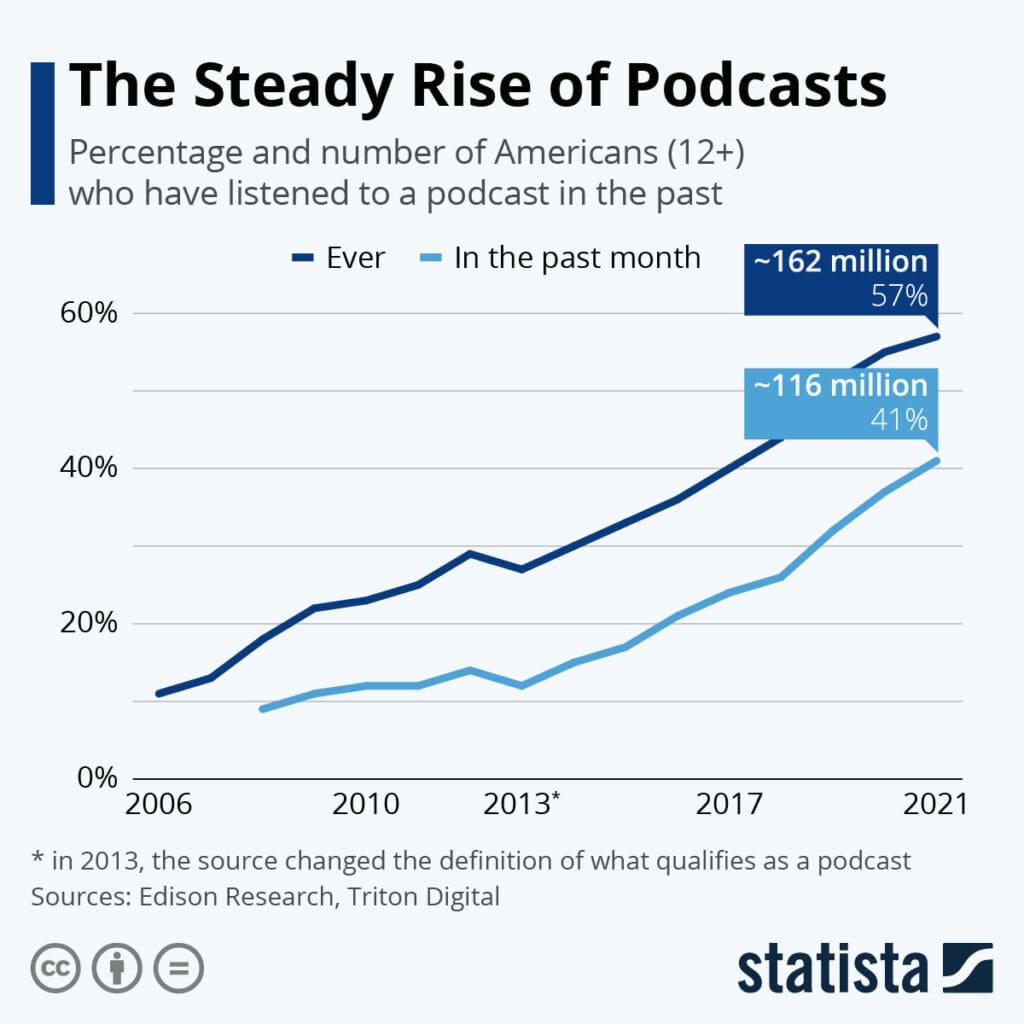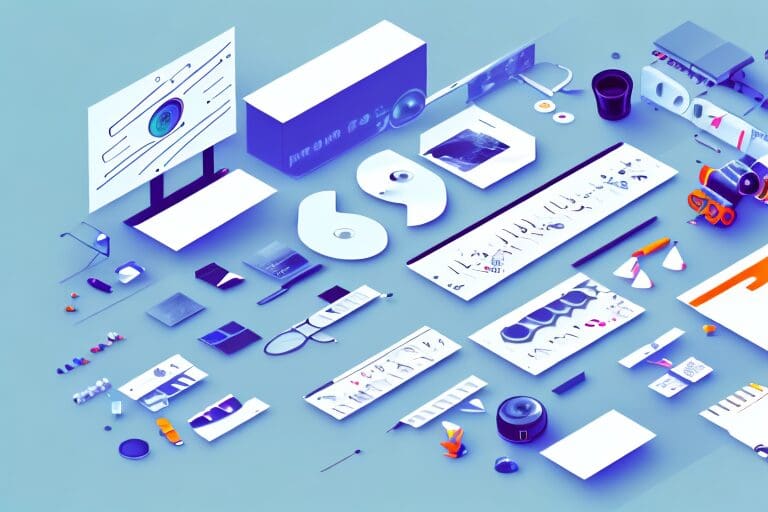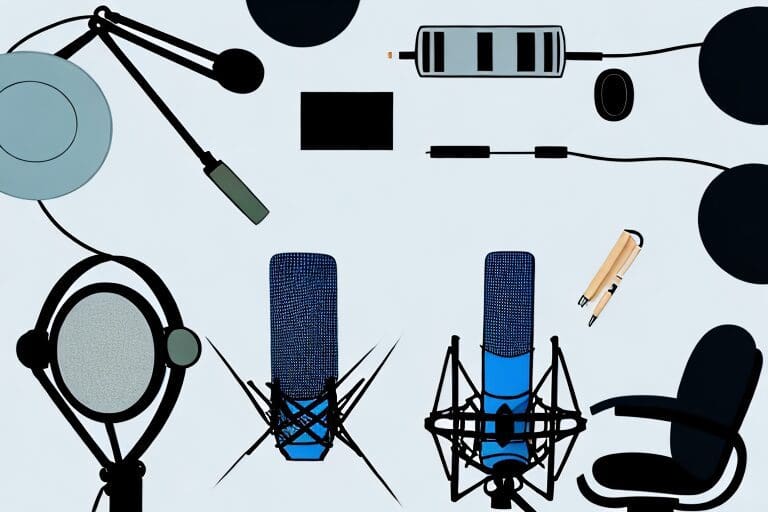The Ultimate Guide to Podcast Studios: 10 Essential Tips for Success
In recent years, podcasting has exploded in popularity, with millions of people around the world tuning in to listen to their favorite shows. Whether you’re a seasoned podcaster or just starting out, having a dedicated podcast studio can greatly enhance the quality of your recordings. In this ultimate guide, we’ll explore the basics of podcasting, the importance of a podcast studio, and provide you with 10 essential tips to set up your own successful podcast studio.Understanding the Basics of Podcasting
Before diving into the world of podcast studios, it’s important to have a solid understanding of what podcasting is. Simply put, podcasting is the distribution of audio or video content on the internet. It allows creators to produce and share their own shows, ranging from interviews and storytelling to educational content and news updates. But let’s take a closer look at the intricacies of podcasting and explore why it has become such a popular medium.What is Podcasting?
Podcasting is a form of digital media that allows users to download or stream audio files to their devices. These audio files, commonly known as episodes, are typically released in a series, with new episodes published regularly. Podcasts are like radio shows that you can listen to whenever you want. They cover a wide range of topics and can be found on various platforms, such as Apple Podcasts, Spotify, and Google Podcasts. Whether you’re interested in true crime, comedy, history, or self-improvement, there’s a podcast out there for you. One of the great things about podcasts is that they are portable. You can listen to them while commuting, exercising, or doing household chores. They offer a way to make the most of your time and turn mundane activities into opportunities for learning and entertainment.
The Rise of Podcast Popularity
In recent years, podcasting has experienced an impressive surge in popularity. According to a 2021 report by Statista, there are over 1.75 million active podcasts worldwide, with a staggering 43 million episodes available for listeners.
So, what has contributed to this exponential growth in podcasting?
Firstly, the convenience and accessibility of podcasts have played a significant role. Unlike traditional media, podcasts can be consumed on-demand, allowing listeners to tune in at their own convenience. Whether you’re on a long road trip, waiting for a doctor’s appointment, or taking a walk in the park, you can easily access and enjoy your favorite podcasts.
Moreover, podcasts offer a unique and intimate listening experience. Many podcast hosts have a conversational style, making you feel like you’re part of a friendly discussion. This personal connection with the host creates a sense of familiarity and keeps listeners engaged.
Additionally, the diverse range of topics and genres available makes podcasting a versatile medium for both creators and listeners. From true crime enthusiasts to science fiction lovers, there’s a podcast tailored to every interest. This wide array of content ensures that there’s always something new and exciting to discover.
Furthermore, podcasting has provided a platform for underrepresented voices and niche communities. It has given individuals the opportunity to share their unique perspectives and stories, fostering inclusivity and diversity in the media landscape.
As the podcasting industry continues to evolve, it’s clear that this medium has become an integral part of our digital lives. So, whether you’re a podcast enthusiast or considering starting your own show, understanding the basics of podcasting is the first step towards embarking on an exciting audio journey.
The Importance of a Podcast Studio
While it’s possible to record a podcast in any quiet room, having a dedicated podcast studio can greatly improve the overall quality of your recordings and enhance the listener experience.
Imagine stepping into a specially designed space where every detail is carefully considered to optimize your podcasting experience. A podcast studio provides not only a controlled environment, but also a creative sanctuary where your ideas can flourish.
Why Do You Need a Podcast Studio?
A podcast studio provides a controlled environment that minimizes external noises and distractions. This ensures that your recordings are clean and professional, capturing the true essence of your content without any interference.
Think about the last time you listened to a podcast. Did you notice any background noise or unexpected interruptions? These distractions can take away from the listening experience and may even cause your audience to lose interest. By investing in a podcast studio, you can eliminate these obstacles and deliver a seamless audio experience.
Benefits of Having a Dedicated Podcast Studio
Having a dedicated space for podcasting offers several benefits. Firstly, it allows you to set up your equipment permanently, reducing the time and effort required for each recording session. No more scrambling to find the right microphone or untangling a mess of cables. Your podcasting setup will be ready to go whenever inspiration strikes.
Furthermore, a studio environment helps establish a professional image for your podcast. When you invite guests to join you for an interview or discussion, they will be impressed by the dedicated space you have created. This not only enhances your credibility as a podcaster but also sets the tone for a productive and engaging conversation.
Additionally, a podcast studio provides a space for experimentation and creativity. With a dedicated area for recording, you can explore different sound effects, music overlays, and editing techniques. This freedom allows you to elevate your podcast to new heights and create a unique listening experience that keeps your audience coming back for more.
Imagine the possibilities of having a podcast studio at your disposal. You can transform your podcasting journey from a hobby to a professional endeavor, reaching new levels of success and satisfaction.
Planning Your Podcast Studio
Before setting up your podcast studio, careful planning is essential. Consider the following factors to create an optimal recording environment.
Choosing the Right Location
When selecting a location for your podcast studio, prioritize quiet areas where external noises are minimal. Avoid spaces with traffic, construction sites, or other sources of potential disturbances. A dedicated room or a well-insulated area can go a long way in providing a distraction-free environment.
Imagine walking into your podcast studio, closing the door behind you, and feeling an immediate sense of calm. The sound of silence envelops you, creating the perfect atmosphere for recording your next episode. You take a moment to appreciate the thought and effort you put into choosing the right location for your studio.
As you researched potential spaces, you considered the noise levels in each area. You knew that external noises could easily find their way into your recordings, disrupting the flow and quality of your content. So, you made it a priority to find a quiet spot, away from the hustle and bustle of everyday life.
You carefully avoided areas with heavy traffic, knowing that the constant honking of car horns and the rumble of engines would be a constant distraction. Construction sites were also a big no-no, as the sound of jackhammers and drills would undoubtedly find their way into your microphone. Instead, you sought out peaceful corners, where the only sounds you would hear were those you intentionally created.
Ultimately, you found the perfect spot—a dedicated room that you transformed into your podcast sanctuary. The walls are well-insulated, creating a soundproof barrier that shields you from the outside world. You smile, knowing that this location will provide you with the distraction-free environment you need to produce top-notch content.
Considering the Size and Layout
The size of your podcast studio will depend on your specific needs and available space. However, it’s important to ensure that the space is sufficient to comfortably accommodate your equipment, including microphones, headphones, and a mixing console. A well-organized layout will streamline your workflow and make recording sessions more efficient.
Picture yourself standing in the middle of your podcast studio, surrounded by your carefully chosen equipment. The size of the space perfectly suits your needs, providing ample room for you to move around comfortably while ensuring that your gear is within easy reach.
You took the time to plan the layout of your studio meticulously. Each piece of equipment has its designated spot, creating an organized and efficient workspace. Your microphones stand tall on their boom arms, ready to capture your voice with crystal clarity. Your headphones rest neatly on a shelf, waiting to be worn and transport you into the world of sound.
A mixing console takes center stage, its knobs and sliders begging to be adjusted as you fine-tune your audio. You’ve positioned it at the perfect height, ensuring that you can effortlessly reach every control without straining or interrupting your workflow. The cables connecting your equipment are neatly tucked away, preventing any potential trip hazards and maintaining a clean aesthetic.
As you stand there, surveying your studio, you can’t help but feel a sense of pride. Your careful consideration of size and layout has paid off, creating a space that not only looks professional but also enhances your creative process. With everything in its place, you know that recording sessions will flow smoothly, allowing you to focus on what truly matters—delivering exceptional content to your listeners.
Essential Equipment for Your Podcast Studio
Investing in quality equipment is crucial for producing professional-sounding podcasts. Check out our guide on recommended equipment for your home podcast studio here.Here are some essential items to consider:
Microphones and Headphones
A high-quality microphone is the most critical piece of equipment in your podcast studio. Look for microphones that offer clear and accurate sound reproduction. Additionally, comfortable headphones with good sound isolation will help you monitor audio levels and ensure a precise recording.
Mixers and Audio Interfaces
A mixer or audio interface allows you to control audio levels, add effects, and connect multiple microphones. Choose a mixer or interface that suits your specific recording needs and provides excellent audio quality.
Acoustic Treatment and Soundproofing
Acoustic treatment minimizes echo and reverberation in your studio, resulting in cleaner recordings. Consider installing foam panels or diffusers on the walls and using bass traps to control low-frequency sounds. Soundproofing techniques, such as sealing gaps and using soundproof curtains, can further isolate your studio from external noises.
Setting Up Your Podcast Studio
Now that you’ve gathered the necessary equipment, it’s time to set up your podcast studio for optimal performance.
Arranging Your Equipment
Position your microphones and headphones in a way that allows easy access and comfortable reach. Consider using boom arms or microphone stands to keep your hands free during recordings. Additionally, place your mixer or audio interface within arm’s reach for convenient adjustments.
Creating a Comfortable Environment
Create a comfortable environment in your podcast studio by adding seating options and adjustable lighting. A well-designed studio that prioritizes ergonomics will make long recording sessions more enjoyable and productive.
By following these essential tips, you’ll be well on your way to creating a successful podcast studio. Remember to experiment with different recording techniques, engage with your audience, and continue to refine your skills. Happy podcasting!

Podcast Studios FAQ
A podcast studio is a dedicated space designed for recording podcasts, offering a controlled environment that optimizes sound quality and minimizes external disturbances.
Having a podcast studio ensures your recordings are of professional quality, free from background noises, and provides a space for creativity, making the overall podcasting experience more streamlined and efficient.
A dedicated podcast studio allows for permanent equipment setups, creates a professional podcasting image, and provides an environment for experimentation and creativity.
Prioritize quiet areas away from traffic, construction, or other disturbances. Ideally, select a dedicated room or a well-insulated space for optimal sound quality.
Yes. Ensuring that the studio is spacious enough for your equipment and providing a well-organized layout can streamline your workflow and make recording sessions more efficient.
Key equipment includes high-quality microphones, headphones, mixers or audio interfaces, and tools for acoustic treatment and soundproofing.
Acoustic treatments like foam panels, diffusers, and bass traps minimize echoes and reverberation, resulting in cleaner, clearer recordings.
While not mandatory for everyone, mixers and audio interfaces offer greater control over audio levels, effects, and connecting multiple microphones, enhancing overall sound quality.
Prioritize ergonomics by adding comfortable seating options, adjustable lighting, and arranging equipment for easy access.
Yes, it’s possible to record a podcast in a quiet room. However, a dedicated podcast studio enhances the overall quality of your recordings and offers a professional setup for more consistent results.
